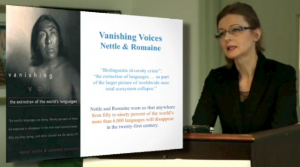Description
Students who select this concentration will receive the Master’s of Education (Ed.M.) degree in Education Studies. The concentration in Comparative and Global Education (CGE) is noted on the diploma.
The CGE concentration is designed for students who are interested in studying education in broad-based social, cultural, and linguistic contexts. Students in this concentration seek to understand the global issues that affect educational practices and outcomes in schools, communities, and educational systems on local and global levels. The CGE concentration prepares students with both foundational and advanced knowledge, skills, and dispositions to become global educational leaders. Students in this concentration will be prepared to contribute to the most current and pressing discussions around educational policy as they are happening around the world.
|
Degree Concentration
|
Prospective Students
|
Format
|
|
Comparative and Global Education
(CGE)
|
Anyone interested in the study of education in global contexts including those aspiring to be a successful professional or academic in educational leadership. Careers include but are not limited to the following:
· Faculty and researchers of comparative education or related fields in higher education;
· Teachers and administrators in K-12 schools;
· Policy makers and analysts in government and non-governmental agencies.
|
Hybrid
|
Successful graduates typically take jobs in:
- Colleges/Universities–as faculty/scholars of comparative and global education or administrators in international (e.g., study abroad) programs;
- Schools–as supervisors or school administrators;
- Ministries–as policy makers and analysts;
- International development or human service agencies–as analysts, program officers, or administrators;
- Non-governmental agencies–as researchers, analysts, program officers, or administrators.
Program of Study
The strength of the CGE concentration program of study lies in the maximum flexibility in designing the program according to the dynamic needs and interests of the student. Individualized programs are built and optimized in continuous consultation with and guidance from their academic advisors.
Consider the program guide below as a guiding reference, instead of a pre-determined program universal to all students (see Course Descriptions online at: http://gse.buffalo.edu/admissions/course-descriptions).
I. Core courses (Take a minimum of 12 credit hours from the courses below.)
- Nature of Inquiry (ELP500)
- Comparative Higher Education (ELP511)
- Structure and Reform of Education (ELP530)
- Economics of Education (ELP543)
- Comparative and Global Studies in Education (ELP566)
- Education and Globalization (ELP575)
II. Breadth courses (Select from University-wide course offerings. See select GSE courses below.)
- Cultural Diversity in Higher Education (ELP513)
- Education in a Global Economy (ELP525)
- Culture and Schools (ELP540)
- Foundations of Education (ELP548)
- Women in Educational Comparative Perspective (ELP571)
- Education in Asia (ELP574)
- Multicultural Education: Theory and Practice (ELP582)
- Gender and Education (ELP583)
- Sociological Bases of Education (ELP585)
- Education and Socialization (ELP589)
- American Education for International Students (ELP592)
- Qualitative Research Methods in Education (ELP593)
- Applied Social Research (ELP685)
- Independent Study (ELP703)
III. Culminating event (Select one of the 3 options below.)
- Comprehensive exam (1 credit hour; twice a year, in January and May; can take up to twice)
- Master’s Project (ELP700: 1-3 credit hours)
- Master’s Thesis (ELP701: 1-3 credit hours)
Program Procedure
A. Initial Program
- Upon admission to the CGE concentration program, the student designs his or her initial program using CGE Concentration Program Planner in consultation with the initial advisor and begins coursework.
- Transfer courses, if any, should be approved by the initial advisor and the department before the end of the 2nd semester. A maximum of 6 graduate-level credit hours may be transferred into the CGE concentration program with the advisor’s approval.
B. Application to Candidacy
- Application to Candidacy (ATC) for the Ed.M. in Education Studies agreed and signed by the permanent advisor should be filed with the department for submission to the GSE Graduate Studies Committee after completion of 12 credit hours and prior to completion of 24 credit hours.
Admissions Requirements
The CGE concentration program welcomes applications to the program on a rolling basis. All applicants are required to fulfill the following to complete their application to the CGE concentration program.
1. Academic background
a. A baccalaureate degree from an accredited institution prior to enrolling
2. Application fee
a. $50, non-refundable, paid electronically or by check
3. Transcripts
a. Official transcripts from all colleges/universities attended. Applicants who are
currently at UB or have studied at or graduated from UB do not need to request an official UB transcript. GSE’s Office of Admissions can download and print the transcript.
b. Please be sure to provide us with your former/maiden name if you have one. When requesting transcripts, please ask the sending institution to indicate both your current name and former/maiden name.
4. Two recommendation letters (either from an academic or a professional reference)
5. A sample of academic writing (approximately 5 pages long)
6. Online application with all supporting documents (http://gse.buffalo.edu/apply).
a. According to new policies and procedures regarding the application process effective fall 2013, all supporting documents must be uploaded and attached to your online application. This includes unofficial copies of your transcripts, recommendation letters, and any other documents required for review.
7. English language proficiency (for international students)
a. All applicants, including those who are transferring from or who have completed degree programs at other U.S. colleges or universities, must have their score in the Test of English as a Foreign Language (TOEFL) or the International English Language Testing System (IELTS) reported directly to the University. The score report must be dated within 2 years of intended enrollment at UB.
8. Financial documentation (for international students)
a. Complete and return the Foreign Applicant Financial Statement along with supporting documentation as outlined in the instructions.
Financial Assistance Opportunities
The Department, the Graduate School of Education, and the University offer a wide range of financial assistance opportunities to incoming and continuing students. Students should apply through a special application form to the Department. The University offers a number of competitive fellowships for which students should apply. The Graduate School provides information concerning the nature, availability, and qualifications of these fellowships. Other opportunities for financial assistance become available from time to time, and students are encouraged to keep in touch with the Department on a regular basis if financial aid is required.
Faculty
William Barba, Clinical Professor of Higher Education. Research interests include educational leadership and policy. Courses include Foundations of Higher Education, Historical Bases of Higher Education, Critical Issues in Higher Education, Higher Education in U.S., Intercollegiate Athletics in Higher Education, Supervised Professional Experience, and Law & Education.
Janina Brutt-Griffler, Professor of Foreign Language Education, ELP Department Chair, and Director of the Center for Comparative and Global Studies in Education. Research interests include the understanding of language use in society, educational and language policy, and higher education. Courses include Doctoral Seminar in Sociolinguistics, Principles of First and Second Language Acquisition, and Linguistics for Second Language Education.
Nathan Daun-Barnett, Assistant Professor of Higher Education. Research interests include college access and choice in U.S. higher education and public policy in higher education. Courses include Financing Higher Education, Program Evaluation and Assessment, Organization and Governance in Higher Education, and College Choice and Access in U.S.
Greg Dimitriadis, Professor of Educational Culture, Policy and Society and GSE Associate Dean for Academic Affairs. Research interests include qualitative methods, urban education, educational policy, and popular culture. Courses include Sociological Bases of Education, Qualitative Research Methods, Sociology of School Knowledge, and Education and Globalization.
Seong Won Han, Assistant Professor of Educational Culture, Policy and Society. Research interests include international and comparative education, gender inequality in STEM, educational policy, and teacher quality. Courses include Comparative and Global Studies in Education, Education and Social Stratification, and Foundations of Education.
Megan Holland, Assistant Professor of Higher Education and Educational Administration. Research interests include sociology of education K-20, educational transition, college access, and racial and ethnic diversity. Courses include Higher Education in U.S., Changing Social Contexts for Education Leaders, Organization and Governance in Higher Education, and Educational Transitions P-20.
Stephen L. Jacobson, UB Distinguished Professor of Educational Administration. Research interests include effective principal leadership in challenging, high needs schools, the reform of school leadership preparation and practice, and teacher compensation and labor market behavior. Courses include American Education for International Students, Reforming Teacher Compensation, and School & District Capacity Building.
D. Bruce Johnstone, SUNY Distinguished Service Professor of Higher and Comparative Education Emeritus and Director of the International Comparative Higher Education Finance and Accessibility Project. Research interests include higher education finance, higher education governance, and international comparative higher education. Courses include Comparative Higher Education and International Comparative Education Finance.
Namsook Kim, Clinical Assistant Professor of Educational Leadership and Policy and Assistant Director of the Center for Comparative and Global Studies in Education. Research interests include transformative education in a multilingual, multicultural, global society. Courses include Multicultural Education: Theory and Practice, Cultural Diversity in Higher Education, Language, Culture, and Education in a Global Society, Principles of First and Second Language Acquisition, and Linguistics for Second Language Education.
Raechele Pope, Associate Professor of Higher Education and Student Affairs. Research interests include multicultural competence, psychosocial development of students of color, multicultural organization development, and transformative leadership. Courses include The American College Student, Cultural Diversity in Higher Education, New Futures for Higher Education, Student Development, and Practicum in Higher Education Research.
Thomas M. Ramming, Clinical Associate Professor of Educational Administration. Research interests include leadership in schools. Courses include Collective Bargaining, Clinical Seminar Interns, Leading and Effective School District, and School Business Administration.
Margaret Sallee, Assistant Professor of Higher Education. Research interests include faculty work, graduate student socialization, work/life balance, and gender and masculinities. Courses include Historical Bases of Higher Education, Student Affairs Administration, The College Professoriate, and Organization and Governance in Higher Education.
Steven Simpson, Assistant Professor of Educational Leadership and Policy. Research interests include economics of education. Courses include Economics of Education, Financing Higher Education, Education in a Global Economy, and Critical Issues in Higher Education.
Corrie Stone-Johnson, Assistant Professor of Educational Administration. Research interests include educational change, educational leadership, teacher cultures, and micropolitics. Courses include Nature of Inquiry, Curriculum & Instruction Leadership, and Problems & Paradigms in Educational Administration.
Lois Weis, SUNY Distinguished Professor of Educational Culture, Policy and Society. Research interests include race, class, and gender in American schools. Courses include Qualitative Research Methods in Education, Education and Socialization, and Writing Dissertation Proposals.
Contacts
- For questions regarding admissions:
Mr. Ryan Taughrin
Office of Graduate Admissions and Student Services
Graduate School of Education
University at Buffalo
366 Baldy Hall
Buffalo, NY 14260
Phone: (716) 645-2110
Email: ryantaug@buffalo.edu
- For questions regarding CGSE concentration program: Dr. Namsook Kim
Department of Educational Leadership and Policy
Graduate School of Education
University at Buffalo
475 Baldy Hall
Buffalo, NY 14260
Phone: (716) 645-1094
Email: nkim3@buffalo.eduDownload CGE Concentration Program Guide & Planner. The hard copy is also available in the Center for Comparative and Global Studies in Education (CCGSE) (475 Baldy Hall) and the Department of Educational Leadership and Policy (ELP) office (468 Baldy Hall).




